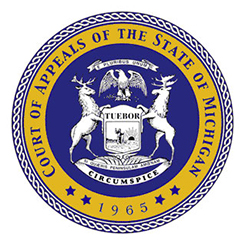In a recent unpublished opinion, the Michigan Court of Appeals affirmed summary disposition for an insurer, finding that the insurer was entitled to rescind an insurance policy based on the insured’s misrepresentation regarding her employment in the application for insurance.

In Erica Kelley v Meemic Ins Co, the plaintiff filed suit to recover no-fault PIP benefits from the defendant insurer for injuries she allegedly sustained in a motor vehicle accident. The plaintiff listed St. John Hospital as her employer in her application for insurance with Meemic.
The insurer’s investigation revealed that the plaintiff was actually employed with the Michigan Primary Care Association at the time she applied for insurance with Meemic, and rescinded plaintiff’s insurance policy due to her misrepresentation. Meemic asserted that plaintiff’s employment with the Michigan Primary Care Association made her ineligible for insurance with Meemic based upon the eligibility criteria in Meemic’s underwriting guidelines.
Meemic moved for summary disposition, arguing that the plaintiff’s claims were barred because it was entitled to rescind the insurance policy due to the plaintiff’s failure to disclose her true employer in her insurance application. The trial court granted Meemic’s motion for summary disposition.
On appeal, the plaintiff argued that Meemic’s underwriting guidelines were ambiguous and should be construed in plaintiff’s favor. But the Court of Appeals held that the underwriting guidelines were not part of the plaintiff’s insurance contract. The court reiterated that the policy application, declarations page, and policy itself constitute the entirety of the insurance contract. Because the allegedly ambiguous underwriting guidelines were not part of plaintiff’s insurance contract, the plaintiff could not construe them against Meemic.
The plaintiff also argued on appeal that the trial court erred when it granted the insurer’s motion for summary disposition because a genuine issue existed as to whether plaintiff’s misrepresentation was intentional. The Court of Appeals quickly disposed of this argument and found that the trial court did not need to consider whether the misrepresentation was intentional, as long as the insurer relied upon the representation made in plaintiff’s application for insurance.
Though unpublished, this case provides a cogent analysis of the arguments surrounding rescission. This case will bolster the ability of no-fault insurance carriers to defend against plaintiffs’ attempts to assert underwriting ambiguities as a shield for their fraud.
Danielle DePriest is dedicated to effectively and efficiently achieving the best possible results in the insurance defense cases she handles.
Danielle’s interest in public policy led her to the practice of law. She earned a Bachelor of Arts from the University of Michigan’s Gerald R. Ford School of Public Policy, and served as Vice Chair of American Movement for Israel and Chair of the Programming Board for Michigan Hillel.


